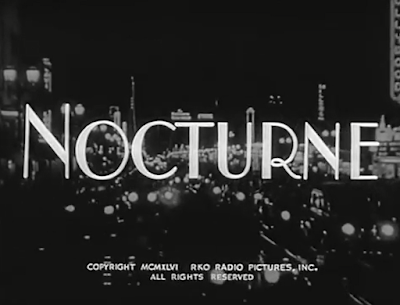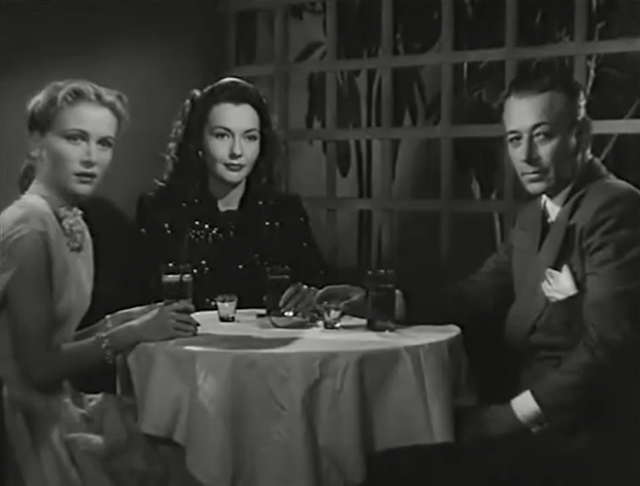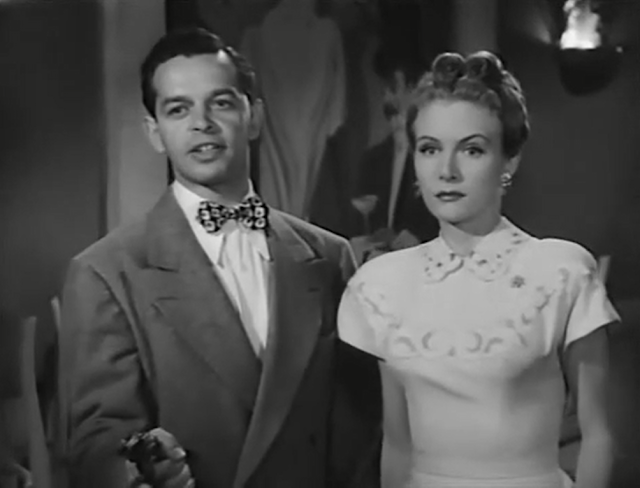Within the excellent opening photography, we witness rakish Hollywood composer (Edward Ashley) dropping dead in his swanky Hollywood house.
The film noir police force think it's a straight up suicide, but maverick lieutenant hero Joe Warne (played by George Raft) suspects murder.
With no hanging about, Warne discovers that this Hollywood composer has broken the hearts of at least ten women in recent years, offering motive for murder aplenty.
The main suspect is Frances Ransom (played by Lynn Bari), who may or may not have been avenging her sister, the nightclub thrush Carol Page (Virginia Huston).
Pursuing the case with enough firm diligence to get him at one stage thrown off the police force, determined copper Joe Warne of course refuses to give up.
There is a hint here of a sub-genre that would become larger by far as the years passed, the dark side of Hollywood as film noir, which remained popular as much among the community itself, as it was with the theatre-visiting public. Hollywood loves to film itself, murdering itself. In that glorious, glamourous heart, there is always a corrupting influence to be found.
Like with his immediately previous RKO picture, the George Raft vehicle Johnny Angel, Nocturne was a box-office winner.
 |
| Legs in film noir Nocturne (1946) |
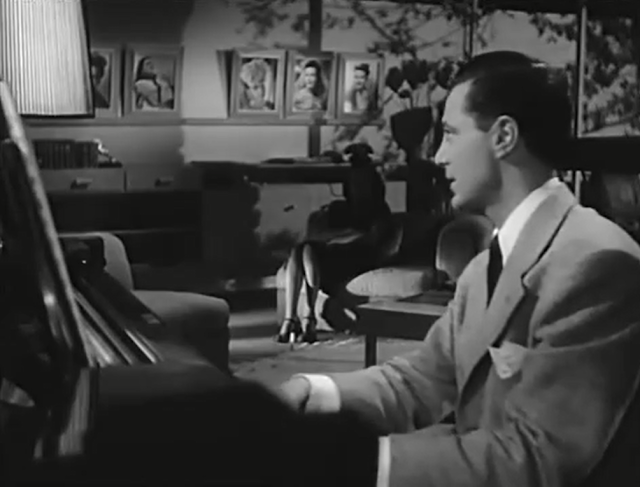 |
| Terrific leggy musical opening shots . . . . |
/ |
| A certain suicide? |
Successful silver screen songsmith Keith Vincent is a serial seducer of women – all brunettes, all called “Dolores” – and in exceptionally caddish manner, displays his conquests on his wall in a film noir gallery of dames I've seduced.
As he is composing a kiss-off tune for his latest fling, a tune called “Nocturne,” Vincent sadly learns the true meaning of the term lady killer.
 |
| George Raft in Nocturne (1946) |
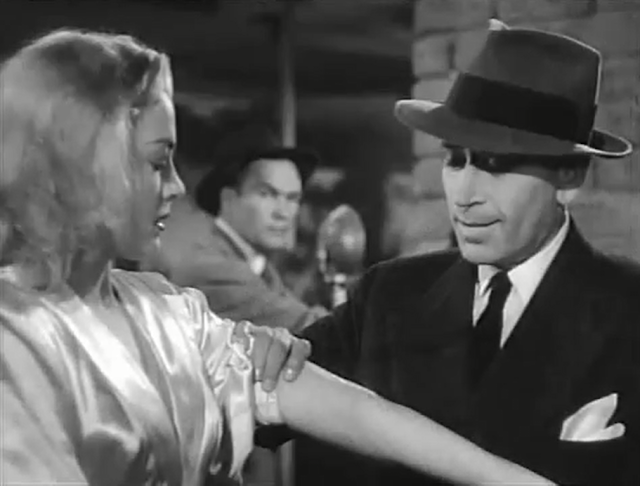 |
| Police investigations of domestic abuse in Nocturne (1946) |
Perhaps the most significant innovation in the character of film noir is the psychological intensity with which the characters appear, interact and either succeed or fail. It's this that elevates both the murder mystery and the police procedural, both of which are touched upon as styles in Nocturne.
As a more simplistic version of the plot-style introduced by Nocturne's wiser and fresher big sister, Laura (1944), illusion and identity underscore the more straightforward aspects of the plot. Most satisfying of all, among a fairly decent cast of possible murder suspects, is the fact that the lucky viewers know from the start that the death at the head of the film is a murder, and not a suicide as the police rather idiotically assume.
Only detective Joe Warne, played by George Raft, sees things differently. What begins as a traditional copper's hunch becomes a fixation as he unravels the bleeding obvious, suspect by suspect, working his way through a series of Hollywood venues, including most excitingly of all, the RKO studios themselves.
The strange touch which gives Nocturne its lighter moments involve the copper's mother, who fusses over him and appears as a stalwart and a good friend. Other than her, there are no women in the detective's life, but it wouldn't be Hollywood if that was not about to change. It's not the first time either we see George Raft styled as the mothers' boy; think Invisible Stripes; although there the mother weirdly becomes full on sleuth, herself.
The favoured trope of all these movies when it comes to milieu, is the fact that nobody is very nice, that it is a tough old world, and that nearly everyone outside the police force could and should be considered a suspect.
The idea of the murder of a cinematic composer is a charming one. Unfortunately, the tune that the composer is working on when he is killed is not a memorable one; the title theme 'Nocturne' is not even memorable from one scene to the next. The composer himself seems to be a rather pompous and idiotic womaniser, so it would appear that it was only going to be a matter of time before he bought it; and Nocturne does benefit from a highly dramatic and memorable opening, which leads up to the murder as he presents a rather tasteless musical array to show off his female conquests, just as he in the process of dumping another one.
The exterior shots of 1940s Los Angeles are definitely worth the admission fee, as do the scenes of LA nightlife, into which the film jams itself. George Raft's inscrutability as an actor is maybe lost within this busy bustling world, a world into which he places himself as something of a tourist. In his 40s and still living with his mother, he makes an unlikely noir hero, and he retains a cosiness that nobody else in the picture or the world it depicts, shares.
 |
| Film Noir goes home - - RKO featured in Nocturne (1946) |
Amid the false leads and dead ends which work well to keep the viewer guessing, there is a spadeful of style which may conceal many of the film's weaknesses, and its curious procession towards the villain, whose identity becomes quite obvious perhaps a lot sooner than might be desired.
What is curiously gripping is the character of the man who was murdered, a high-class composer and playboy who calls all of the many women he has bedded by the same name: Dolores.
It remains to be seen if there is any deeper joke within this most untender characterisation, although the underlying message is clear: he dislikes the idea of women having any personality so much, that other than where they came from, a fact which provokes much noodling on the piano, they are all the same to him and meaningful not as people, but merely as women per se.
Viewers drift with this kind of action, and that is the film noir journey. Once in the cinema and in the dark, another type of dream commences, and viewers return to the streets with a detective's hat on, and the fantasy unravels in an intimate and safe manner, ridiculous at times, but all the while focusing ion sexuality, morality and murder.
And that is film noir in another fine nutshell.
